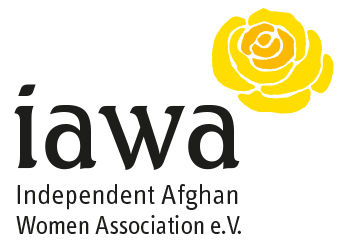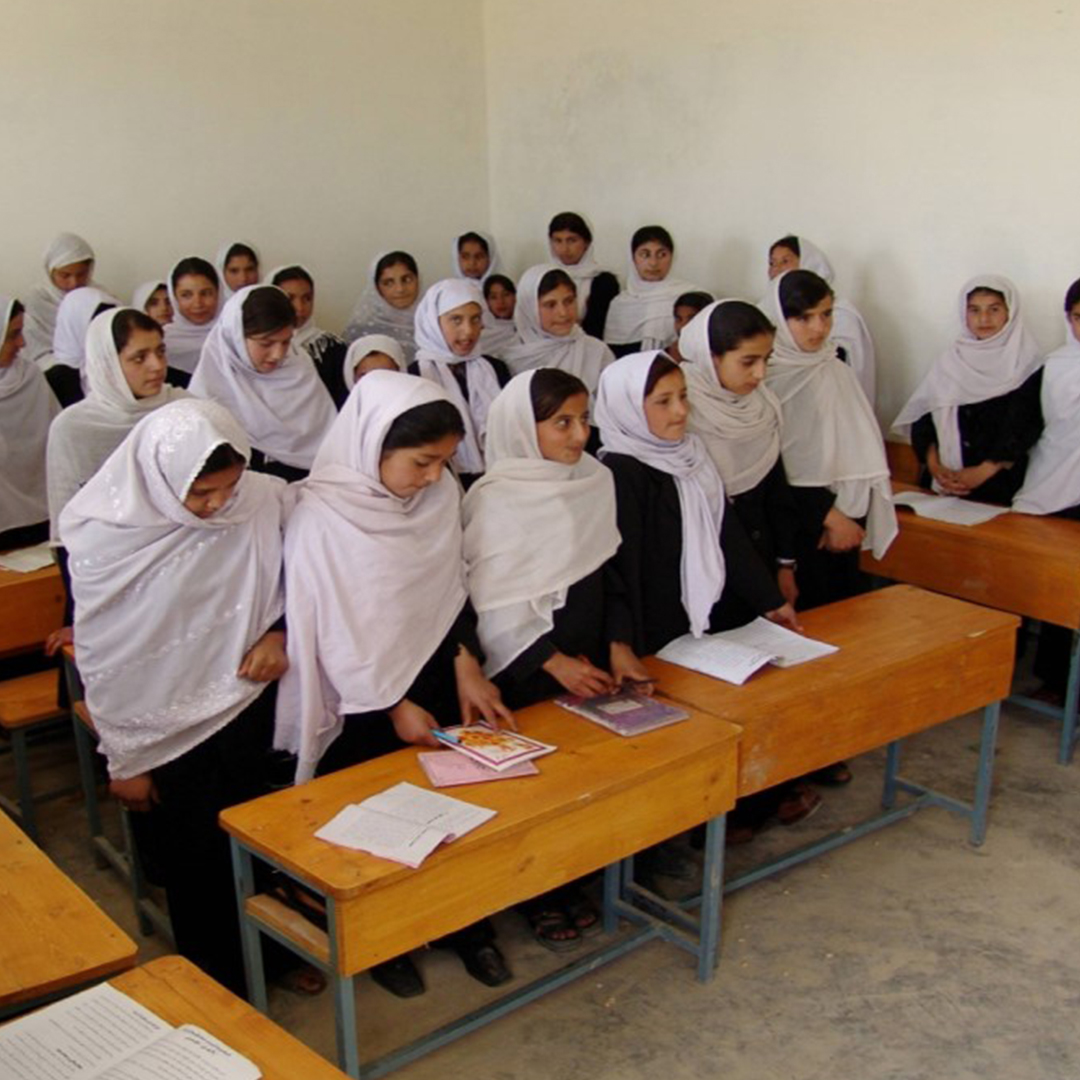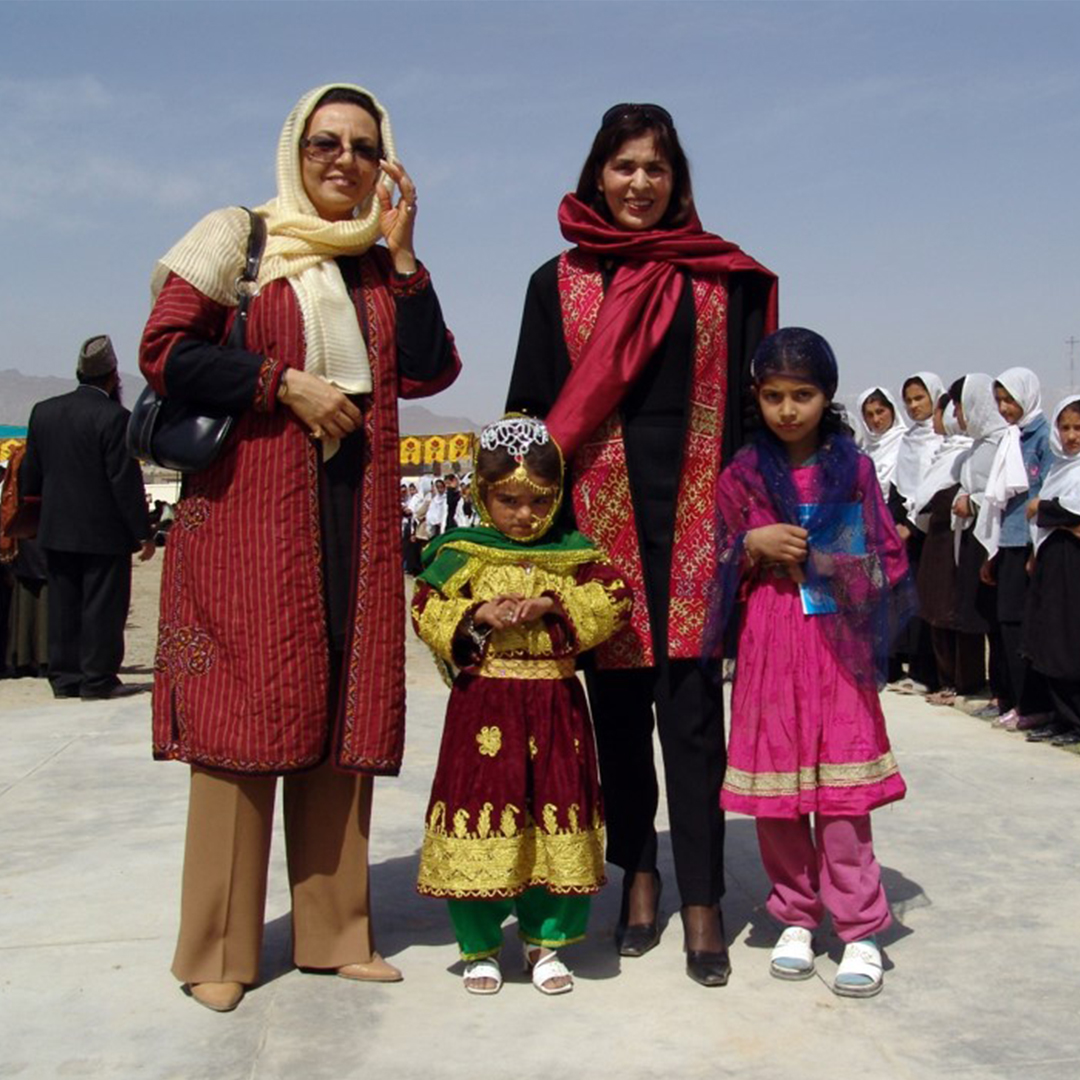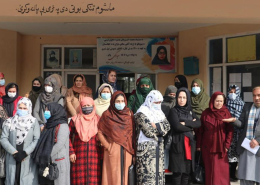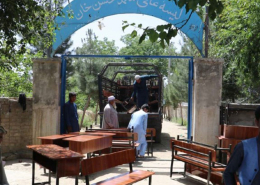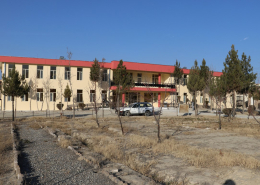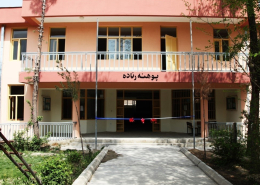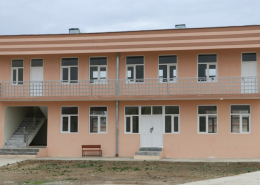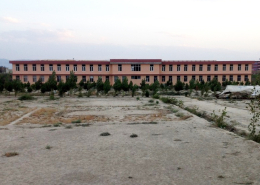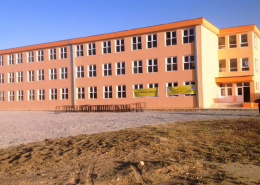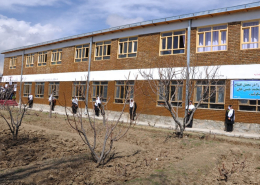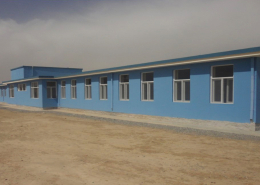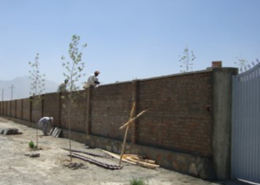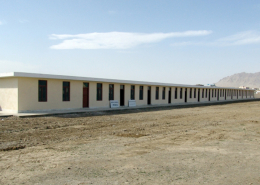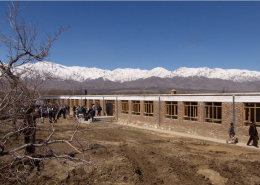Secondary school Ghulam
Mohammad Farhad
(since March 2010) Handover/Inauguration: March 2007
The first project in Pul-i Tscharchi (a community
lying 40 km east of Kabul, called “the village of the poor”), whose population had suffered a great deal during the 23-year-long war.
Although a village school existed, the building, in part without windows and doors, had only eight classrooms and four toilets. Due to the crowded conditions, the 3,500 pupils had also to be taught in two UNO-supplied tents, as well as – regardless of the extreme weather conditions in summer or winter – in the open air, in three shifts.
Moreover, the building stood unenclosed on its site and had no security fence and was thus accessible to all.
On IAWA initiative, the school, which by then taught 6,000 pupils from the first to the twelfth grade, which were able to take their A-levels then, was extended by fifteen classrooms, a staff room, a large conference room, a library and six toilets. They built also a daycare centre to care for the small children of the staff during classes. In 2011, more than 50 graduates of this high school were students at the University of Kabul.
The 24,000 square metres wide area was walled with a high brick wall to protect the pupils and the buildings. This is partly integrated into the building of new classrooms, forming the outer part of the wall, saving building and material cost.
For the planting of the premises, on which there also was laid out a sports field, Princess Wana, a granddaughter of the late King Zahir Schah, could be won. Princess Wana, who stands in contact with Mrs. Laila Noor, has a great interest in the IAWA projects and is is prepared to act as a coordinator.
In March 2007, the official handover of the school took place. in Pul-i Tscharchi, with Laila Noor and another IAWA member present. The inauguration, which was organized by the joyful school staff, the pupils and the members of the community, was also attended by the Afghan Minister of Education, the Super Minister and numerous high-ranking personalities.
Although the current cost for the running of the school and the staff’s salaries are now financed by the Afghan Ministry of Education, is due to the lack of teaching and learning materials and incomplete furniture, as well as the constant need for repairs, financial support and supervision from the IAWA still required.
